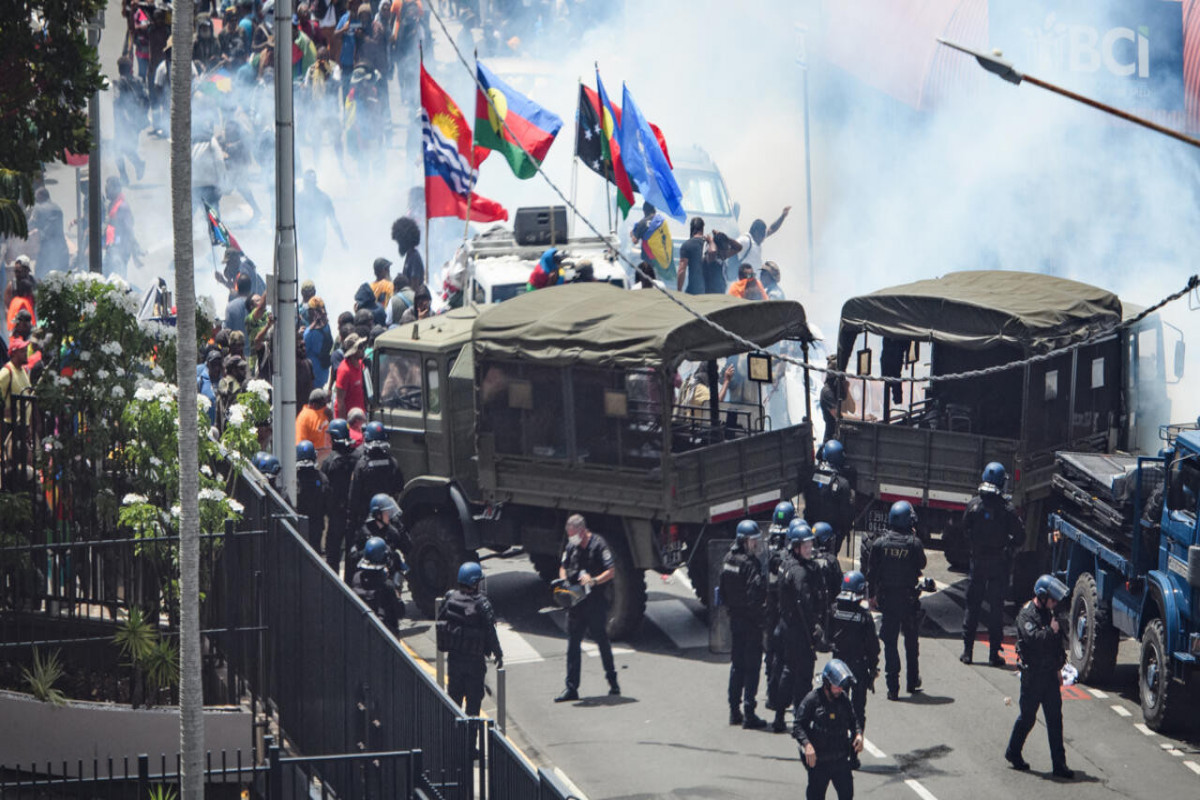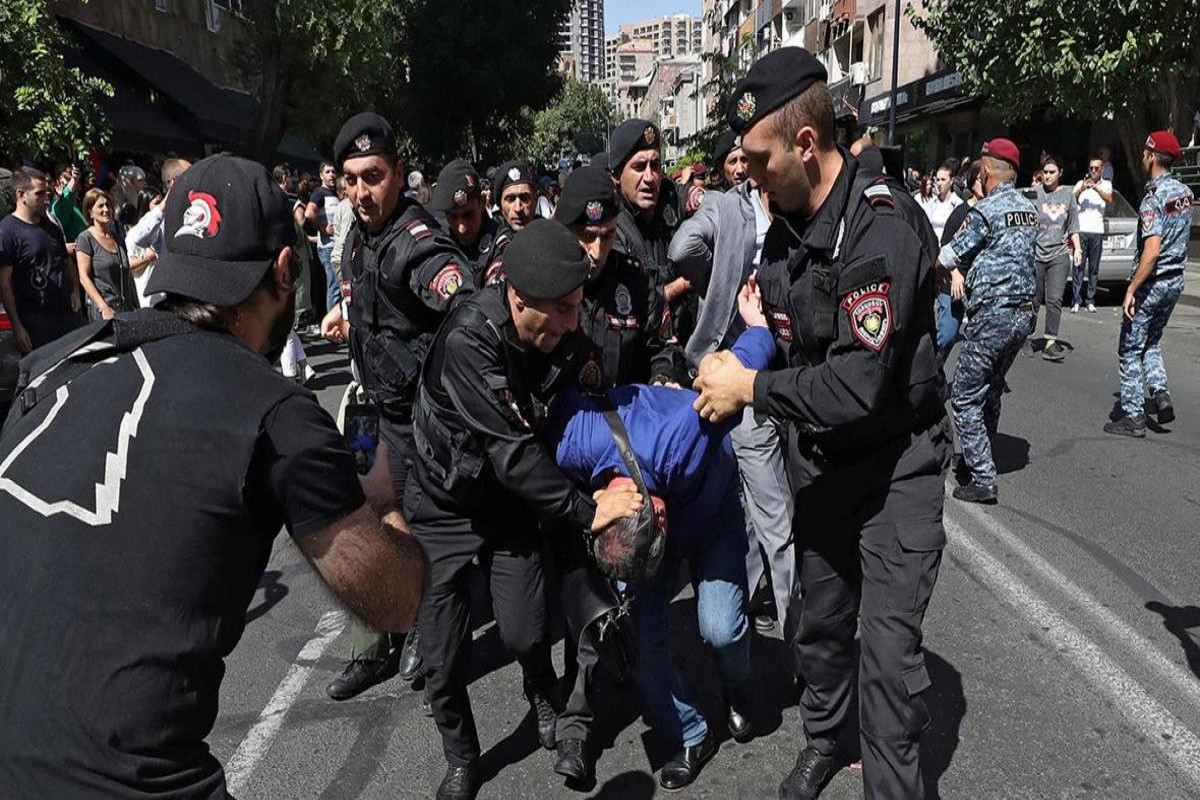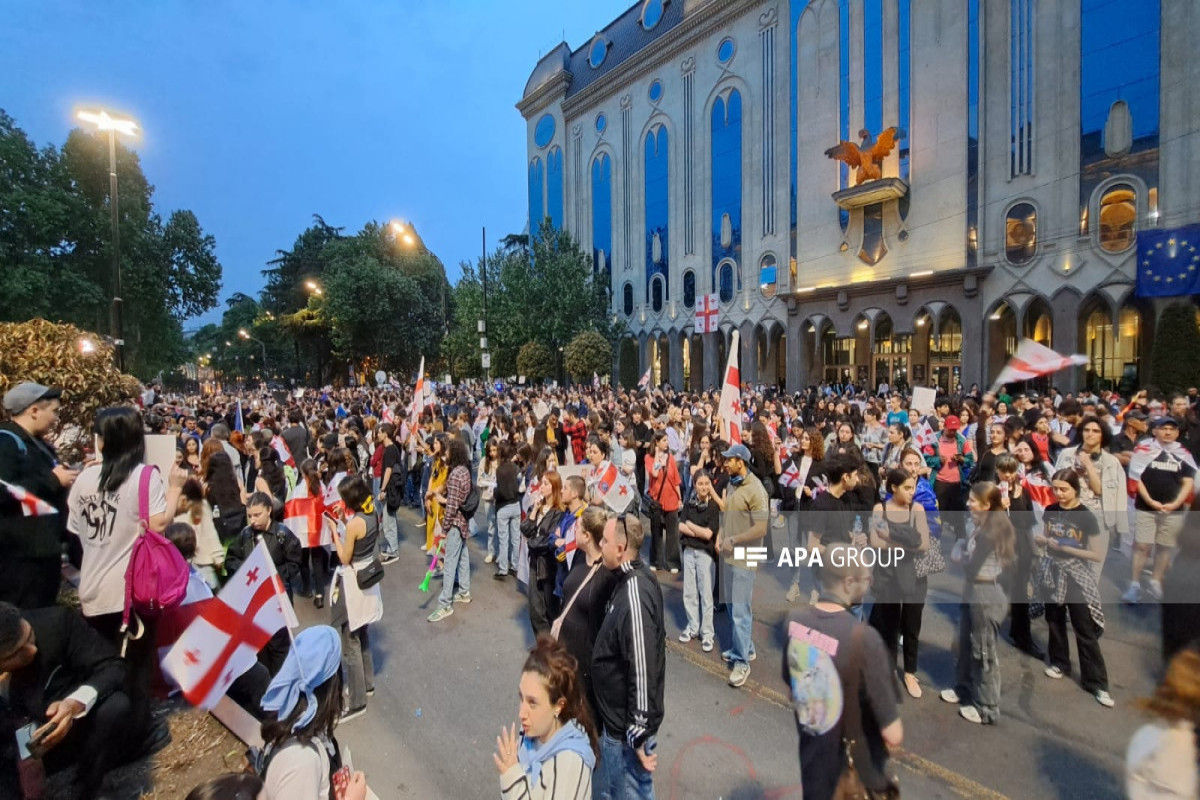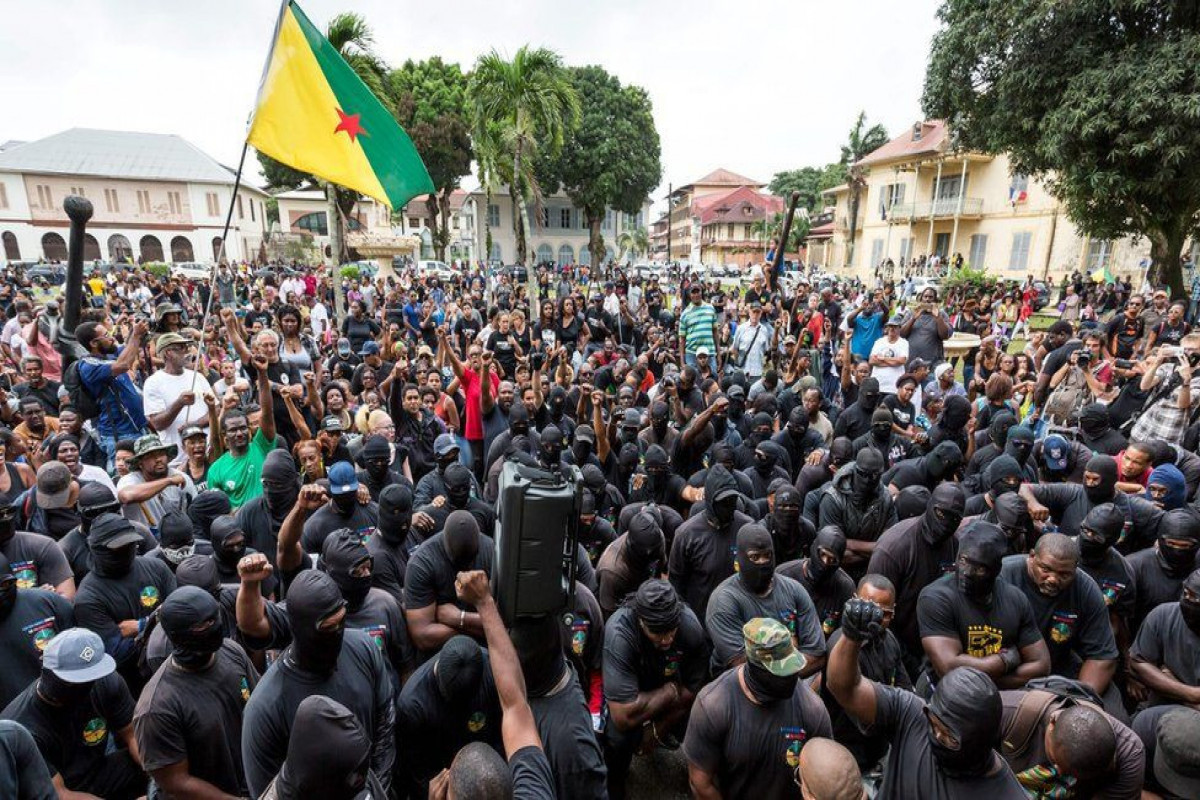Helsinki meeting: First obvious negative influence of West-Russia confrontation on Nagorno Karabakh conflict - ANALYSIS

Helsinki meeting showed that tense relations between the West and Russia also damaged the activity of the international organizations. Russia, which was strictly criticized for its actions against Georgia, showed in response to it that the levers of its political influence had not expired. Russia accused OSCE leadership of organizing the August happenings in Georgia and set up a new precedent by laying down conditions for investigating the organization’s activity.
OSCE Ministerial Council adopted no serious document, since Russia demonstrated power and announced that it would show resistance to the West not only in military and economic sphere, but also in political arena.
Though the sides interested in the adoption of political declaration, regional declarations on Post-Soviet conflicts, first of all Georgia, accused official Moscow of destructive activity, there is one result – Helsinki meeting ended to the advantage of Russia, not in the interests of the West. This was at the same time the second nominal victory of Russia over the West after the August happenings in Georgia on the level of international organizations. The first such nominal victory was won in the UN Security Council, Russia used its right to veto and as a result of it a number of important resolutions meeting the interests of the United States were not adopted. Russia’s demonstrating its power in OSCE after the UN means that:
- effective activity of the international organizations will be impossible, as West-Russia tense relations continue. It also means that the crisis will deepen in the system of the international relations. Taking into account that a number of various (political, economic, security, global) problems are solved within the framework of the international organizations, the results of this political crisis will not be less harmless than the results of the world financial crisis.
OSCE Ministerial Council in Helsinki stuck in memory not only for the political crisis arisen from the West-Russia confrontation. One of the important moments of this meeting was once more clarifying of the positions of concerned parties on the settlement of Nagorno Karabakh conflict. Verbal duel between Armenian foreign minister Edward Nalbandian and OSCE Minsk Group US Co-chair Matthew Bryza once again confirmed that Yerevan is against the solution to the conflict within the principle of territorial integrity. On the other hand, official document spread by the Azerbaijani delegation on the principles of peaceful settlement of the conflict over the Nagorno Karabakh region of Azerbaijan made clear the principles Baku based on in the process of settlement of the conflict. Determination of legal basis and models of Nagorno Karabakh status within Azerbaijan as a last target in the negotiations showed the scale of concession Azerbaijan can make.
Another significant point of this document was to end the manipulations in the domestic policy regarding the settlement of Nagorno Karabakh conflict. The document confirmed that the negotiations did not follow any political course contradicted to Azerbaijan’s interests. If we take into consideration that opinions that the country’s interests are yielded in the negotiation process are formed by the OSCE Minsk Group co-chairs (the co-chairs follow this goal every time while making statements in Yerevan), the document is also clarifying how corresponded positions of the co-chairs and Azerbaijan’s interests are. One of the important works to be done toward this, undoubtedly, is a use of the document spread at the OSCE Ministerial Council in the formation of public opinion inside the country.
The OSCE Ministerial Council’s Helsinki meeting created one question: “How will the increase of West-Russia tensions and existing political crisis in the international arena impact on the process of settlement of Nagorno Karabakh conflict?†Even thoughts about its positive impact will be irrelevant. The United States and Russia are equal mediators in the settlement of Nagorno Karabakh conflict and on the other hand the conflict located in the region, which is in the focus of interests of both countries. Russia’s obstacle to the regional declaration on the Nagorno Karabakh conflict in Helsinki already is the first negative impact on the process of settlement. Prevention of worse impact of the confrontation between the superpowers on the process of settlement will depend on the balancing of Azerbaijan’s foreign policy course.
Political
 ANALYSIS'>
ANALYSIS'>
France's neo-colonial policy is cracking - protests in New Caledonia are beginning of end-ANALYSIS

Selective democracy: Why does the West react differently to police violence in Tbilisi and Yerevan? -ANALYTICS
 ANALYTICS'>
ANALYTICS'>
Georgia is on the verge of chaos again - Will the West achieve the next 'color revolution'?"-ANALYTICS

Neocolonial policy of France on the edge of collapse- French Guiana is also on the path to liberating itself from colonization-ANALYSIS
NEWS FEED
Iranian media: Iran's President and his staff died in a helicopter crash
Iran RCS: Remains of the helicopter found, but no signs of alive passengers
Reuters: Helicopter of the President of Iran, Ibrahim Raisi, was completely burnt as a result of the accident -VIDEO
Wreckage of helicopter carrying Iran’s president located as rescue efforts continue
Türkiye’s Akinci UAV identifies source of heat suspected to be crash site of Iranian president’s helicopter-VIDEO
DPRK forced to take measures to increase nuclear deterrence after US test — statement
Rasisi’s helicopter passenger twice called to say he was feeling bad — senior diplomat
MES: Azerbaijan is ready to send 40 rescuers to search-rescue operation in Iran
Saudi king diagnosed with lung inflammation
Location of Iranian president's crashed helicopter discovered
Türkiye sending night vision search helicopter, 32 rescuers, 6 vehicles to help Iran find president's crashed copter
Fenerbahçe wins derby against Galatasaray
Presidents of Azerbaijan and Iran met in the presence of delegations-PHOTO-UPDATED-1
Iran asks EU for help in finding missing president
Türkiye monitoring developments in Iranian president's helicopter crash
President of Iran: "We were one of the first countries to explicitly state that Karabakh is the territory of Azerbaijan"
Seyyed Ebrahim Raisi: "The most important issue for us is the interests of our countries"
Manchester City win record fourth-successive Premier League title
President Ilham Aliyev, President Ebrahim Raisi attended commissioning ceremony of Khudafarin hydroelectric complex, opening ceremony of Giz Galasi hydroelectric complex-PHOTO-UPDATED-1
Search operation underway to find Iranian President's helicopter-VIDEO-UPDATED-1
Azerbaijan, as friendly and brotherly nation, is ready to provide all necessary support to Iran, says MFA
Azerbaijan ready to provide assistance regarding helicopter incident involving President of Iran - President Ilham Aliyev
Lives of Raisi, Iranian FM at risk after helicopter crash - Reuters
Several injured as passenger buses collide in Baku-PHOTO
Chairman of the Latvian Parliament visited Azerbaijan's Shusha
New page opens in Iranian-Azerbaijani relations - ambassador
Seyyed Ebrahim Raisi: Iran's relationship with Azerbaijan is more than a relationship with a neighbor
President Ilham Aliyev: Iran-Azerbaijan unity and friendship is unshakable
President of Azerbaijan: I do hope that Armenia contributes to regional cooperation, not damage it, by conducting the right policy
President of Azerbaijan: I do hope that Armenia contributes to regional cooperation, not damage it, by conducting the right policy
President: The interference of non-regional countries in our affairs is unacceptable
President Ilham Aliyev: We welcome Iran's support regarding peace agreement between Azerbaijan and Armenia
President: Creation of “green energy” sources in Karabakh, East Zangezur, and Nakhchivan will benefit the entire region
President of Azerbaijan: We have major plans in the field of energy
President Ilham Aliyev: Iranian-Azerbaijani friendship and brotherhood are an important factor for the stability of the region
Interstate relations between Iran and Azerbaijan reached the highest
President Ilham Aliyev: The opening of the "Giz Galasi" hydroelectric complex and the commissioning of the “Khudafarin” hydroelectric complex are historic events
Speaker of Latvian Parliament arrives in Fuzuli-PHOTO
President of Iran: This is a very successful meeting for the two nations"
Houthis attack tanker in Red Sea
House explosion in Türkiye injures seven
China, Tajikistan vow to elevate cooperation
Saudi crown prince, US national security adviser meet on Gaza, bilateral ties
New Caledonia 'under siege' from rioting, says capital's mayor
At least 10 UAVs suppressed in Krasnodar region — operational headquarters
Wildfires sweep across Finland, straining rescue services
Iraqi parliament fails to elect new speaker
Israel’s Gantz demands Gaza post-war plan, threatens to quit gov’t
Preparations for Putin’s visit to North Korea ongoing — Kremlin spokesman
Date for commissioning of first energy block in Akkuyu NPP announced

